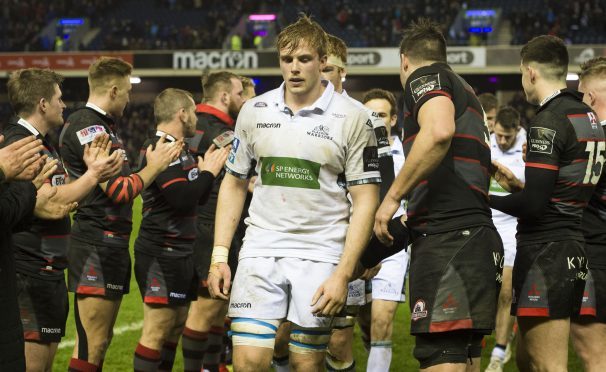Does Saturday’s 1872 Cup triumph for Edinburgh and undeniable humiliation for the Glasgow Warriors represent evidence of a real sea-change in fortunes for the two Scottish pro clubs?
Now with five wins in their last six against the Warriors, Edinburgh already had the recent upper hand in these historic Inter-City contests even before Richard Cockerill arrived with his blunt style and design to turn them from soft touches to hard nuts.
Beating Glasgow had become no great shakes from Edinburgh even under the stagnant regime of Alan Solomons. Beating them 18-17 with 14 men for 75 minutes having given the Warriors a 7-0 start is quite another matter, of course, but it’s clear that the fear factor is not quite there for Edinburgh with their old rivals.
Part of this is that both sides know the opposition personnel so well. Scottish pro rugby is a village, everybody knows each other’s strengths and weaknesses. It’s almost like your kids playing great against their mates in mini-rugby; they’re comfortable with them, but when the team from out of town comes in for a tournament, things are different.
Edinburgh don’t play with nearly as much confidence when they play the likes of Munster, and that’s probably where they really have to back up and earn respect, rather than specifically on Saturday at Scotstoun.
The Cockerill factor
“We stayed in the battle,” said Cockerill of the first leg, admitting that he thought Edinburgh could easily have capitulated and lost by 40 points after the early Huw Jones try and Simon Berghan’s sending off. “The players made a choice, they had an excuse to lose, but they stayed in it.
“I can’t coach the will into them to do that. I can bully them a little, but you have to give them the credit.”
Cockerill didn’t entirely construct Edinburgh’s new backbone but nobody believes that six months ago they could recover from going 7-0 and a man down as they did on Saturday. Clearly Cockerill’s method – not quite as sergeant-majorish as his reputation suggests – has been bought wholesale by the squad.
It’s basically the same team that struggled last year. Not given the same investment as Dave Rennie to expand his player base, Cockerill has poached extra bodies that have caught his eye from sevens and club rugby, benefitted from a number of players – Stuart McInally, Grant Gilchrist, Cornell du Preez, Bill Mata, Sam Hidalgo-Clyne – re-finding their best form after slumps or injury, and really benefitted by his clear rapport with younger players like Blair Kinghorn and Jamie Ritchie.
Set-piece and mauling was always an Edinburgh strength. Defence, under Calum MacRae, has stepped up more than a notch and was the cornerstone of Saturday’s win. They can move the ball now with some authority as well.
Edinburgh are a long way from challenging for titles, and their fixture schedule in the second half of the season is considerably more difficult than the first. But if they can beat up teams as they clearly relished beating up Glasgow, a place in the Champions Cup next season is definitely attainable.
Glasgow’s patience
The try that broke Edinburgh in last season’s 1872 Cup first leg at Murrayfield, scored by Alex Dunbar, came after 20 phases of attacking play. A couple of weeks into the New Year, they attacked for 26 phases to score against Leicester Tigers and start their historic Champions Cup rout at Welford Road.
Dave Rennie clearly wants this kind of patient ball retention. Even 10 phases would probably be enough to have broken down Edinburgh at the weekend, but despite his message to his players – “we said to the boys that a ruck is not a disaster” – Glasgow still push too hard and too often for the killer off-load.
It’s probable that was the reason why Rennie preferred Peter Horne to Finn Russell to start the first leg, given that Russell is prone to trying his hand when there’s no real need, and certainly did so even before circumstances got desperate in the first European Cup loss to Montpellier.
However when on as a replacement at Murrayfield, the Scotland stand-off got the Warriors in behind Edinburgh’s smothering defence at least three times only for others’ execution to let him down – most frustratingly, as Rennie related, even when they had a “two-on-none”.
In addition, for all the success of ten wins in a row – Rennie’s probably right that it’s possibly “a godsend” it is off the agenda now – switching his personnel around the coach as he has done means he doesn’t seem to have a firm idea of what his best XV is, specifically in midfield where there are six quality players for three places.
And for all that the strength in depth has been outstanding so far, Glasgow hugely missed the leadership of Stuart Hogg, Ryan Wilson and Calum Gibbins on Saturday.
Their absence couldn’t be helped – and they will be missing again on Saturday – but it proved that in some PRO14 games, most in the latter half of the season, the Warriors are going to need their best team, whatever that is.


